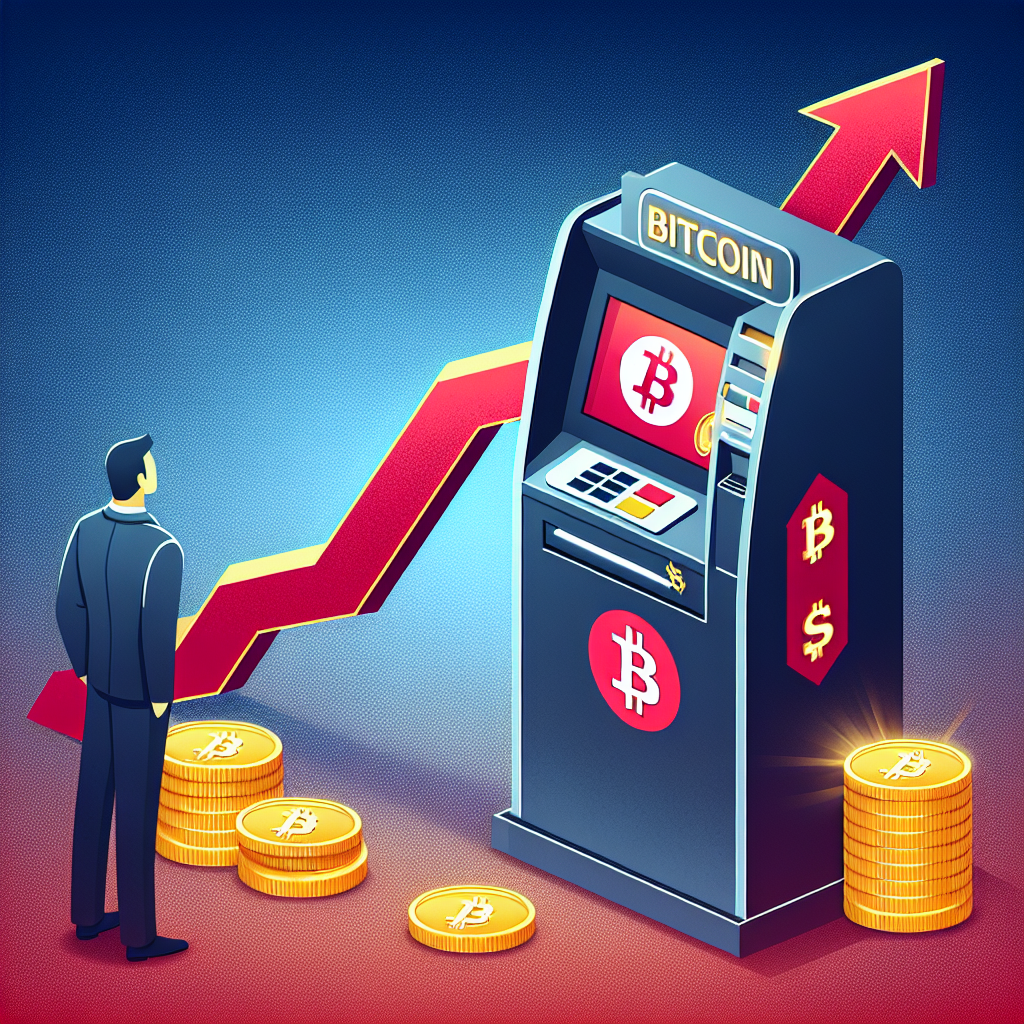Bitcoin
Rising Concerns Over Bitcoin ATM Scams: FTC Reports Over $110 Million Lost Since 2020

The advent of bitcoin ATMs has marked a significant milestone in the integration of digital assets into the everyday financial landscape, offering users a tangible touchpoint for transactions involving cryptocurrencies. These machines, designed to facilitate the buying and selling of Bitcoin and other cryptocurrencies, have proliferated in various corners of the globe, underscoring the growing acceptance of digital currencies. Yet, as their numbers grow, so too do the concerns surrounding their implications for cryptocurrency security.
A report from the Federal Trade Commission (FTC) has recently cast a spotlight on the darker side of Bitcoin ATMs, identifying them as a burgeoning tool in the arsenal of scammers. The FTC’s findings reveal a worrying trend of fraudsters exploiting these machines to deceive individuals into transferring funds under false pretenses. Victims are often lured into sending cash through these ATMs under the guise of protecting themselves from fictitious financial threats, only to find their hard-earned money redirected into the scammers’ digital wallets, beyond the reach of recovery.
This form of deception has proven to be alarmingly lucrative, with reported losses amounting to approximately $115 million since 2020, according to the FTC. The first half of 2024 alone saw losses exceed $68 million, signaling a sharp escalation in the frequency and sophistication of these schemes. Notably, the median loss per incident stood at $10,500, with individuals aged 60 and above being particularly susceptible to such scams. The tactics employed by fraudsters range from impersonating government officials to concocting fake business opportunities or technical support emergencies.
In response to this growing threat, the FTC has issued guidance urging the public to exercise caution. Key recommendations include skepticism towards unsolicited messages demanding money, the importance of verifying the legitimacy of any such claims independently, and the recognition that legitimate businesses and government entities do not ask for payments via Bitcoin ATMs.
Further complicating the landscape is the issue of regulatory oversight. In a notable example of enforcement action, German authorities recently clamped down on unauthorized cryptocurrency ATMs, seizing 13 machines across 35 locations and confiscating approximately $29 million in cash. This move underscores the challenges regulators face in policing the space and the necessity of stringent controls to curb illicit activities.
Beyond the immediate risk of scams, Bitcoin ATMs are also plagued by cybersecurity vulnerabilities. Experts warn that these machines are prime targets for hackers, given the high value of cryptocurrencies. The potential for malware attacks to compromise private keys, the risk of outdated software, and the dangers posed by unsecured machine networks are just a few of the cybersecurity concerns associated with Bitcoin ATMs. Furthermore, the requirement for personal identification information for transactions heightens the risk of data breaches, posing a significant threat to users’ privacy and financial security.
In light of these challenges, the role of Bitcoin ATMs in the broader cryptocurrency ecosystem remains a topic of intense debate. While they offer a convenient bridge between digital and fiat currencies, the security risks they harbor cannot be overlooked. The FTC’s warnings and the actions taken by authorities like those in Germany highlight the urgent need for robust security measures, regulatory oversight, and public awareness to safeguard against the multifaceted threats posed by these machines.
As the landscape of digital currencies continues to evolve, the security of Bitcoin ATMs will undoubtedly remain at the forefront of discussions among regulators, industry stakeholders, and users alike. Ensuring the safe and secure operation of these machines is critical to fostering trust in cryptocurrencies and facilitating their broader acceptance in the global financial system.
-

 Press Releases2 years ago
Press Releases2 years agoGaming Technologies of the New Time!
-

 Altcoins11 months ago
Altcoins11 months agoBitcoin Declines Below $80K: deVere CEO Nigel Green Remains Bullish on Long-Term Outlook Following Strategic U.S. Bitcoin Reserve Announcement
-

 Altcoins10 months ago
Altcoins10 months agoCalls for Enhanced Discussion on Bitcoin as Brazil’s Reserve Asset: A Move Towards ‘Internet’s Gold’
-

 Bitcoin1 year ago
Bitcoin1 year agoBitcoin Surges Past $64K as SEI and POPCAT Lead Daily Crypto Gains on September 25
-

 Press Releases2 years ago
Press Releases2 years agoEvo Exchange: Redefining the Decentralized Exchange Landscape
-

 Bitcoin7 months ago
Bitcoin7 months agoGrayscale Investments Submits Draft Registration for IPO, Aiming for Public Trading in U.S.
-

 Press Releases1 year ago
Press Releases1 year agoCODE, a Newly Born Project Brings Decentralization Back to the Main Menu
-

 Bitcoin6 months ago
Bitcoin6 months agoPeter Schiff Critiques New Crypto Legislation, Claims Bitcoin (BTC) Gains are Short-Lived




